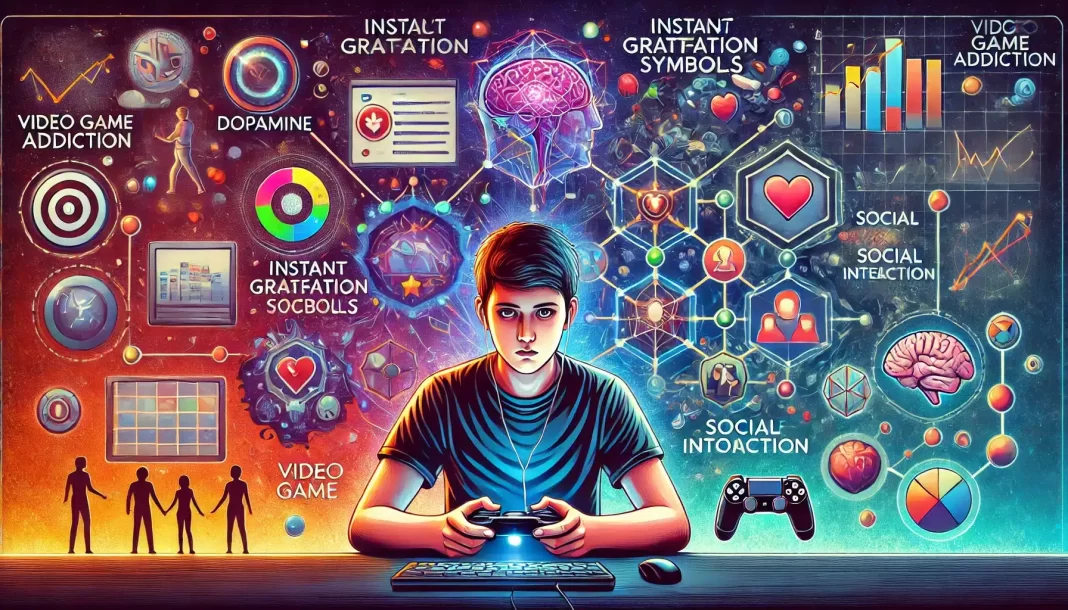Video games addiction among young people is a growing concern. This phenomenon can be attributed to various psychological, social, and physiological factors. Understanding these factors can help in addressing the issue and promoting healthier gaming habits.
Factors Contributing to Video Game Addiction
Psychological Factors
Video games are designed to be highly engaging and rewarding, triggering the brain’s reward system. This can lead to psychological dependency, as players seek to experience the pleasure and satisfaction that games provide.
- Instant Gratification: Video games offer immediate rewards and feedback, satisfying the human desire for instant gratification.
- Escapism: Games provide an escape from real-world problems and stress, offering a sense of control and accomplishment.
- Competition and Achievement: The competitive nature of many games, along with achievement systems (e.g., points, levels, and badges), motivates players to keep playing.
Social Factors
The social aspect of gaming can also contribute to addiction. Multiplayer games create a sense of community and belonging, which can be particularly appealing to young people.
- Social Interaction: Online multiplayer games allow players to connect with friends and meet new people, fulfilling social needs.
- Peer Pressure: The desire to fit in with friends who are also gamers can lead to increased gaming time.
- Online Communities: Engaging with online communities centered around games can create a strong sense of identity and loyalty to the game.
Physiological Factors
Video games can affect the brain’s chemistry, leading to addictive behavior.
- Dopamine Release: Playing video games releases dopamine, a neurotransmitter associated with pleasure and reward, which reinforces the desire to continue playing.
- Cognitive Stimulation: Games that require problem-solving and strategic thinking stimulate the brain, making them highly engaging.
- Sensory Immersion: Advanced graphics, sound effects, and haptic feedback create an immersive experience that captivates players.
Why This Is Important
Understanding the factors behind video game addiction is crucial for parents, educators, and healthcare providers. This knowledge can help in developing strategies to prevent addiction and promote healthy gaming habits.
Possible Implications
- Parental Guidance: Parents can set boundaries and monitor gaming time to prevent excessive play.
- Educational Programs: Schools can incorporate education on healthy gaming habits into their curricula.
- Mental Health Support: Providing support for young people struggling with addiction can help address underlying issues.
- Industry Responsibility: Game developers can design games that encourage balanced play and include features that promote breaks and limit excessive gaming.
What to Follow
- Research Studies: Ongoing research into the effects of video games on mental health and behavior.
- Policy Developments: Changes in regulations and guidelines related to video game content and marketing.
- Technological Advances: Innovations in game design that promote healthy gaming habits.
- Public Awareness Campaigns: Initiatives to raise awareness about the risks of video game addiction and strategies for prevention.
Conclusion
Video game addiction among young people is a multifaceted issue influenced by psychological, social, and physiological factors. By understanding these factors, we can develop effective strategies to promote healthy gaming habits and prevent addiction.
Source: American Psychological Association





